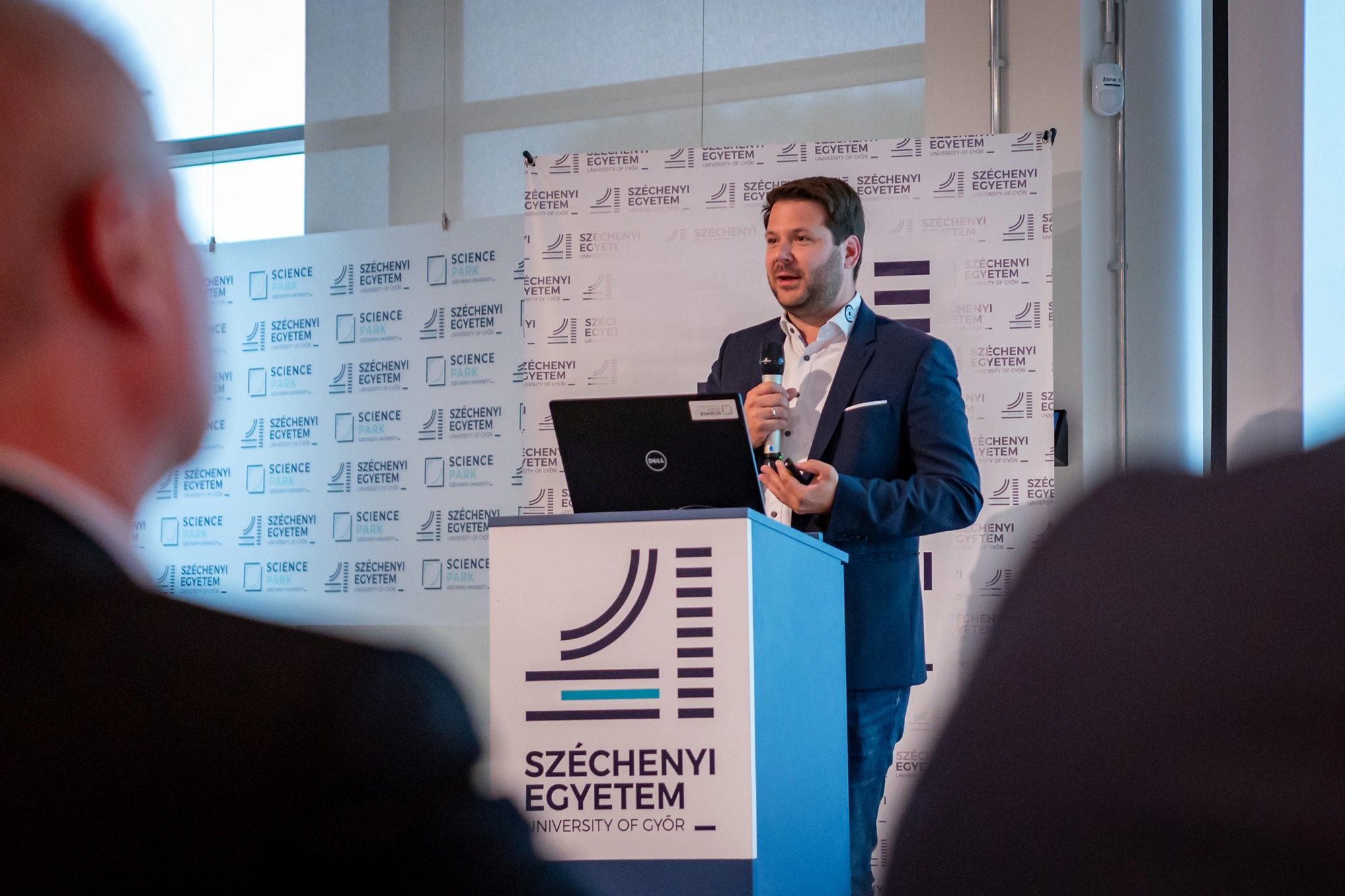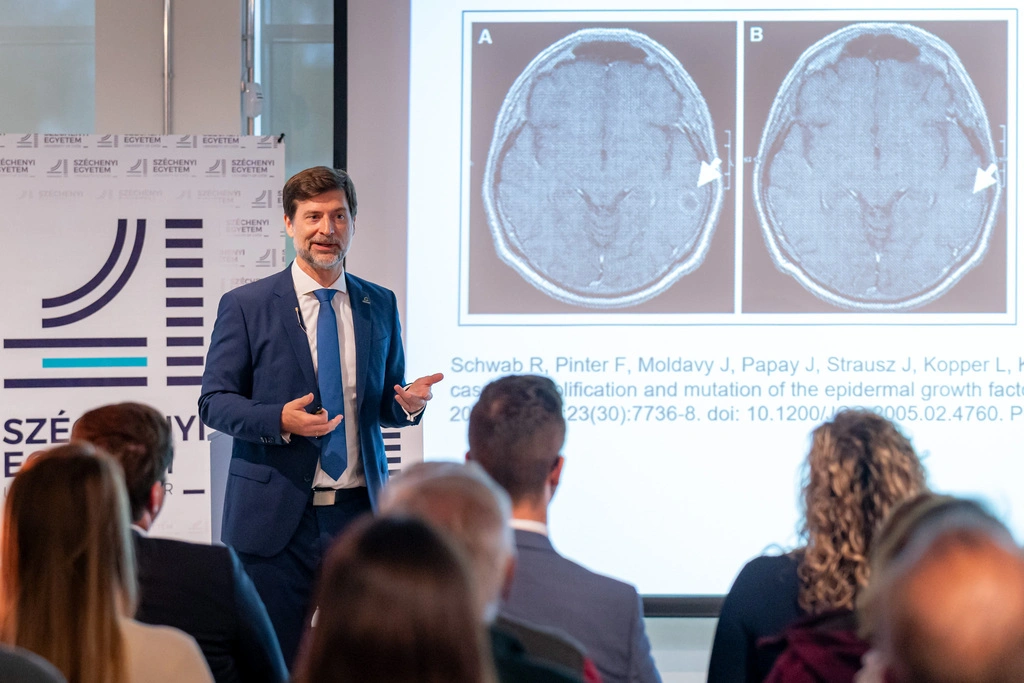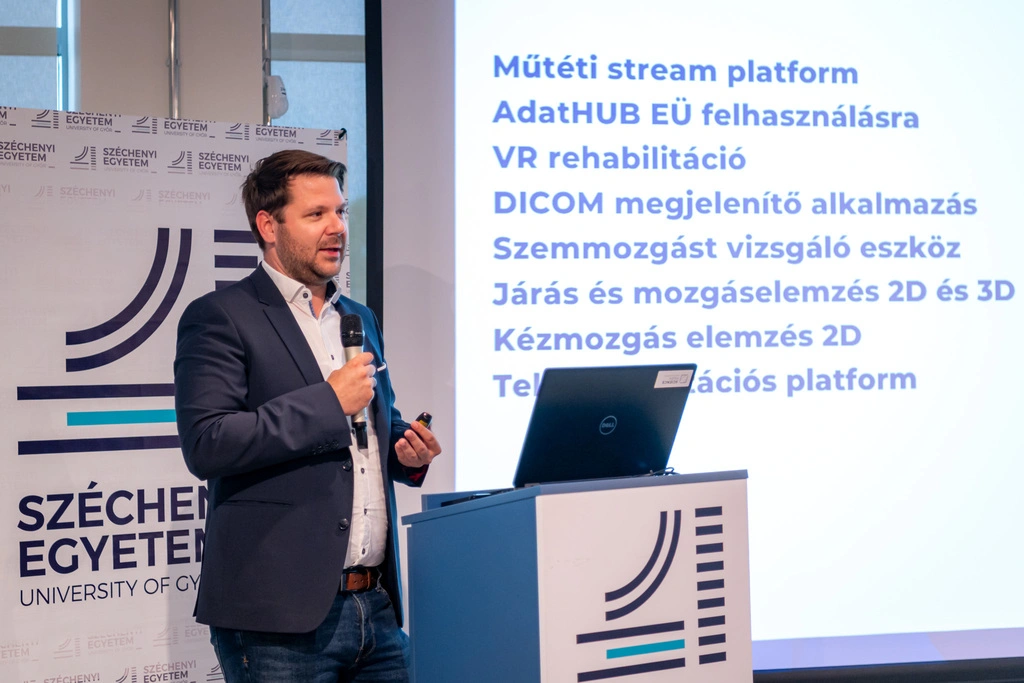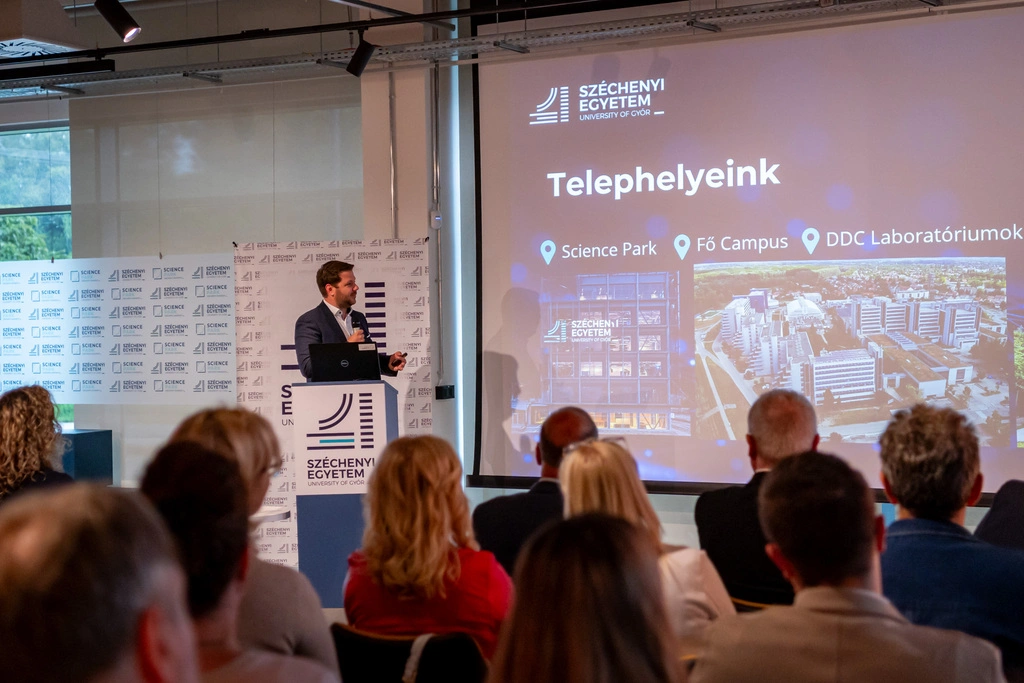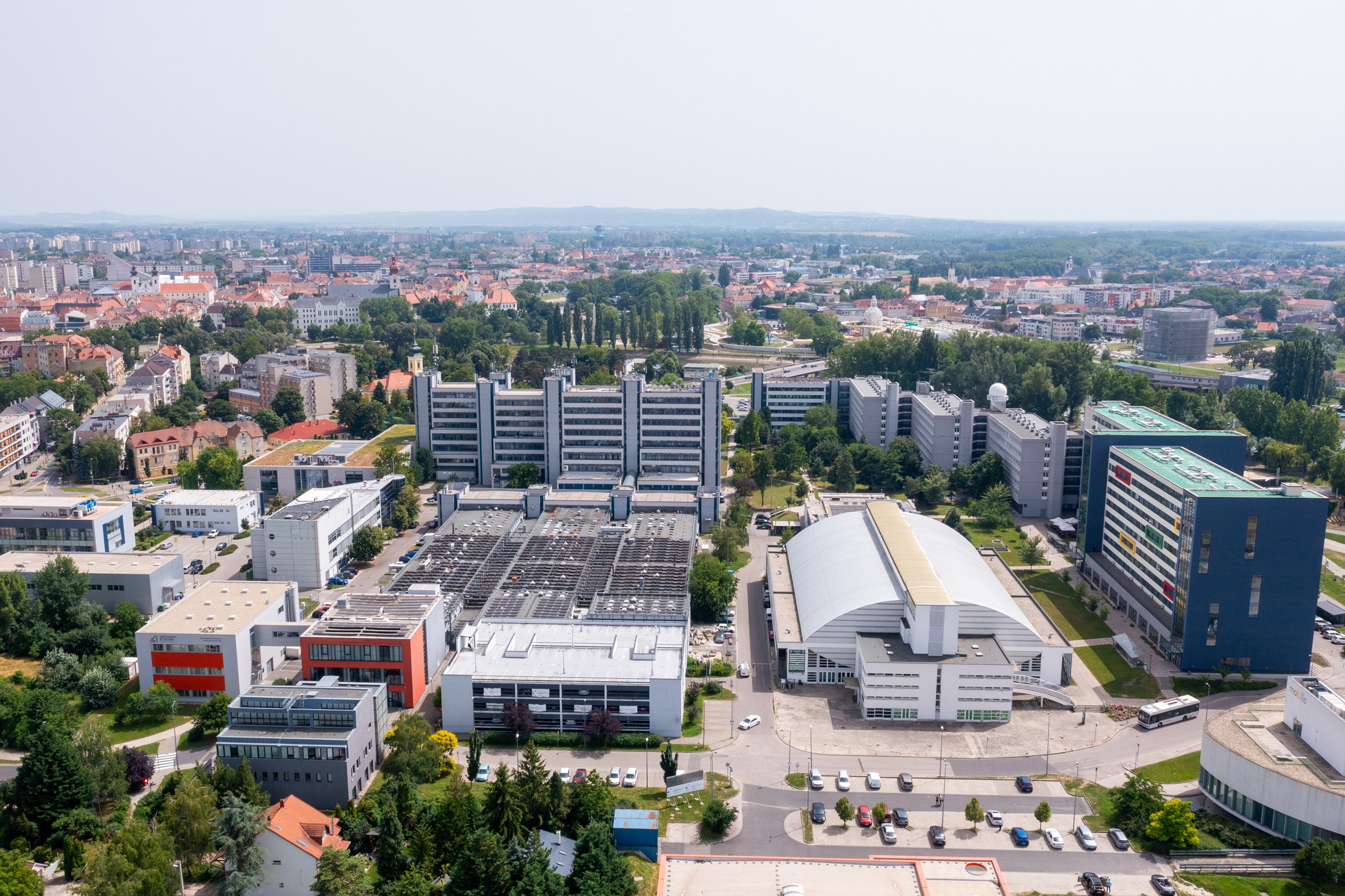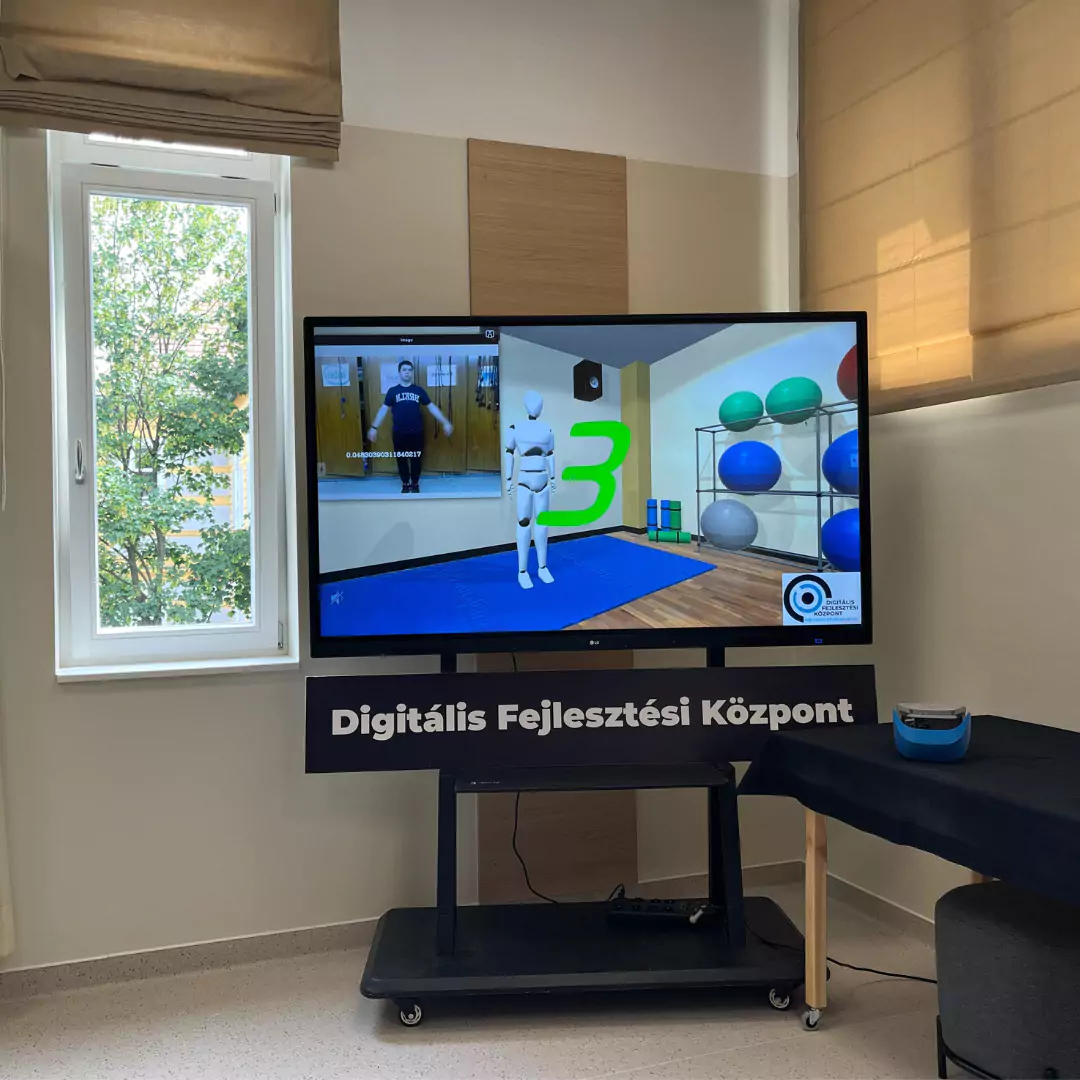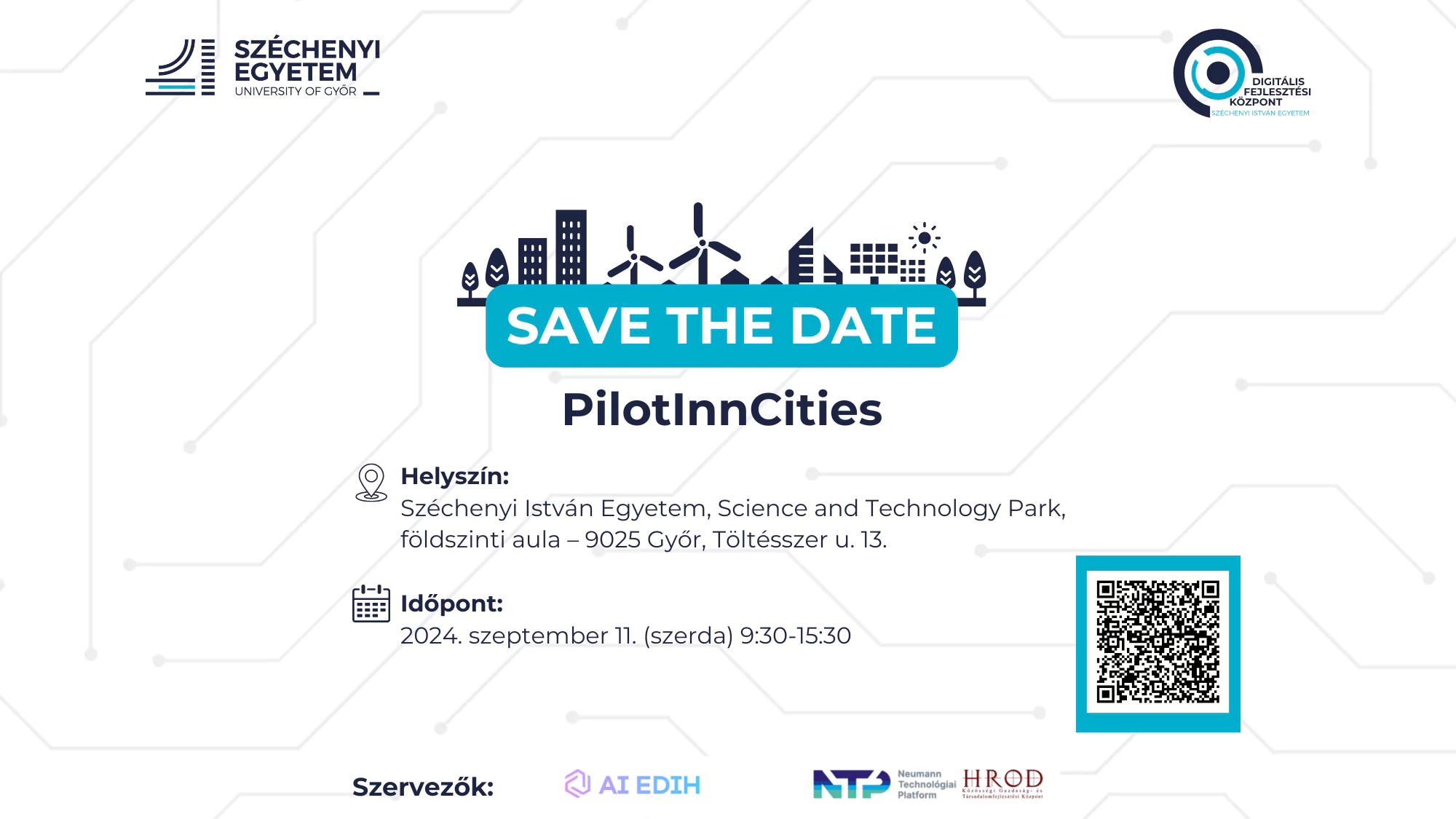Milestone in Medicine: Artificial Intelligence in the Service of Cancer Research
Széchenyi István University’s research professor, Dr. István Peták, and the Digital Development Center (DDC) are jointly working on an innovation that uses artificial intelligence to help select personalized therapies for cancer patients.
Artificial intelligence is one of the most exciting and rapidly advancing fields in medicine. At the forefront of this revolution is Dr. István Peták, research professor at Széchenyi István University, who—together with his colleagues—has developed an AI-based medical software capable of assisting in the selection of molecularly personalized, targeted cancer therapies.
The Digital Development Center (DDC) of Széchenyi István University played a key role in the project: its experts created a technological solution that speeds up and automates the digitization of medical data, significantly improving the efficiency and accuracy of the system.
Data Processing on a New Level – DDC Innovation Supporting Precision Medicine
The DDC team developed an optical character recognition (OCR) technology capable of converting variously formatted and often manually recorded medical information into structured, machine-readable data.
This is a crucial step in enabling artificial intelligence to reliably analyze patients’ genetic and clinical information and assist physicians in choosing the most appropriate therapy.
“The AI-powered software requires a vast amount of data, but manual entry is extremely time-consuming. Our task was to accelerate the digitization process and develop a technology that provides the data to the application in a structured format,”
summarized Dr. Péter Prukner, Vice Dean of the Faculty of Electrical Engineering and Informatics at Széchenyi István University and Head of the DDC Medtech & Sporttech Division.
Where AI Meets Medicine
In his lecture to a full audience at the Győr Innovation Park, Dr. Peták presented the latest achievements of his research group, which mark an international breakthrough.
Using artificial intelligence, the system performs thousands of computations to determine which drug may be most effective for a given patient’s genetic mutations.
“For thirty years, we have been working to uncover the molecular causes of cancer and to treat the root cause directly. Artificial intelligence has opened new horizons—helping ensure that every patient can receive the most effective, personalized treatment,”
emphasized the research professor.
In one clinical study, AI contributed to correct drug selection in 69% of cases—a remarkable step forward in the development of personalized cancer therapies.
From Győr to the World – Joint Innovation for Health
With this project, the Digital Development Center (DDC) of Széchenyi István University once again demonstrated that the Győr-based knowledge hub is a key international player in MedTech innovation.
The center’s developments—from surgical streaming platforms to eye-tracking devices—are all aimed at advancing healthcare digitalization.
Praising the collaboration, Dr. István Peták noted:
“What we are working on together is new not only in Győr, but also in Boston. This tool can help ensure that every cancer patient has equal access to the targeted therapy most likely to be effective for them.”
Széchenyi István University’s Digital Development Center is committed to making healthcare more human-centered, efficient, and accessible through artificial intelligence and technological innovation — from Győr to the world.


